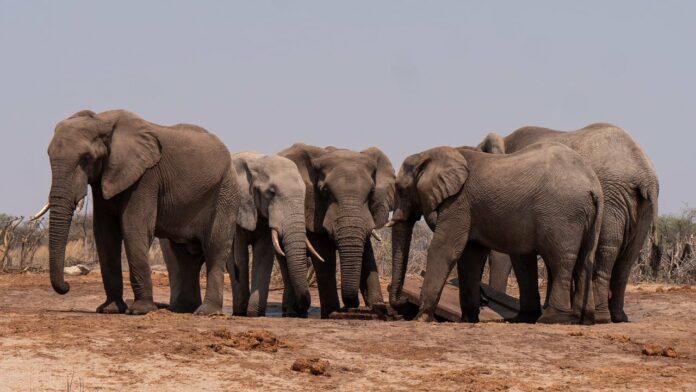Elephants are fascinating creatures. As the largest land mammals on Earth, these massive beings are among the most intelligent animals on our planet, consuming approximately 50 tons of food annually. It is believed that several years ago, there were more than 300 species of elephants, but today only two remain: the Asian and African species.
Additionally, they play a vital role in the environment and in maintaining the balance of fragile ecosystems. Read on to learn more about these incredible creatures and what you can do to protect and preserve their population.
Interesting Facts About Elephants
- Elephants are the largest land animals in the world! African elephant males can reach 3 meters in height and weigh between 4,000 and 7,500 kilograms. Asian elephants are slightly smaller, reaching up to 2.7 meters in height and weighing between 3,000 and 6,000 kilograms.
- Lifespan: The average lifespan of an elephant is 50-70 years, but the oldest known elephant lived to be 86 years old.
- Daily Consumption: Adult elephants spend about 16 hours a day eating and require up to 300 kilograms of food and 160 liters of water each day.
- Teeth: Elephants have 6 sets of molars, which are crucial for their survival. When the last set is lost, the animal cannot eat and eventually dies of starvation.
- Trunk: The elephant’s trunk is a highly impressive multifunctional tool. Besides being used for smelling, breathing, and making trumpet sounds, it also functions like a hand for grasping things. It is sensitive enough to pick up a blade of grass and strong enough to break branches off a tree. The trunk is also used as a huge straw—elephants can suck up to 14 liters of water into their trunks and then blow it into their mouths to drink. During bathing, they use their trunks to spray water and mud over themselves.
- Brain: African elephants have the largest brain in the animal kingdom, weighing up to 5 kilograms. This is remarkable considering the weight of an elephant (Asian elephants weigh about 5,400 kilograms, and African elephants up to 6,000 kilograms). However, the human brain is proportionally larger compared to our body mass.
- Skin: Elephants have very sensitive skin and use mud as a sunscreen. They need to regularly take mud baths to protect themselves from sunburn and insect bites.
- Communication: Elephants communicate with each other using sound, touch, and smell. They have excellent hearing (they can hear a trumpet call from up to 5 miles away) and use a wide range of sounds to talk to each other, including some that humans cannot hear.
- Self-Recognition: Elephants can recognize themselves in mirrors, a sign of very high self-awareness—a trait known to be exhibited only by humans, great apes, and cetaceans.
- Fear: Contrary to popular belief, elephants are not afraid of mice. However, they do fear bees and ants, so some African farmers protect their fields from elephant damage by lining the borders with beehives.
- Differences between Species: Asian elephants are slightly smaller than their African counterparts and have proportionally smaller ears. Their skin is usually dark gray or brown, but they often have pink or yellow markings on their face, ears, and trunk.
